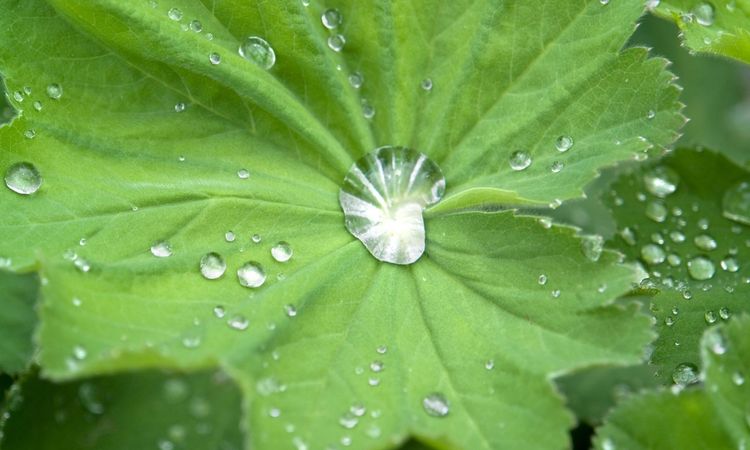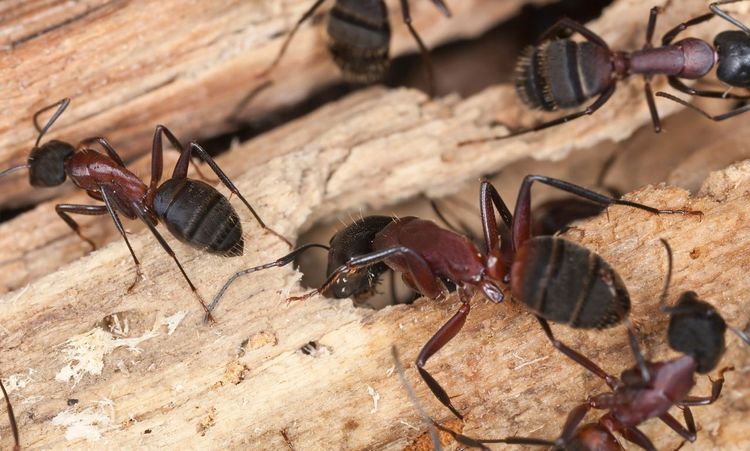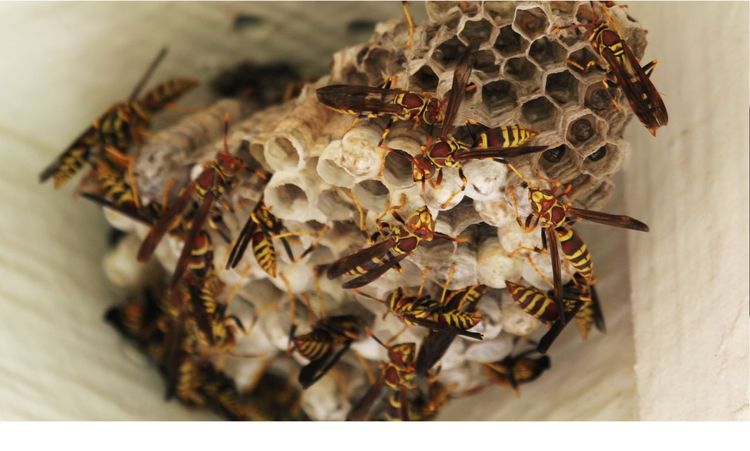As someone who loves spending time outdoors, I know firsthand how annoying wasps can be when trying to relax in your garden or on your patio. Those pesky little stingers always find a way to ruin a perfect summer day!
In this article, we have wasp-repelling plants that look great and create an invisible "Keep Out" sign for those buzzing party crashers. So, let's dive in and explore the best plants to add to your garden for a wasp-free oasis!
Types of Plants to Keep Wasps Away
Lemongrass
Lemongrass is one of my absolute favorite plants for deterring wasps. Not only does it have a delightful citrusy scent that instantly transports me to a tropical paradise, but wasps absolutely despise it! I like to plant lemongrass near my patio and outdoor seating areas to create a natural barrier against these uninvited guests.
What makes lemongrass so effective is its high concentration of citronella oil. Wasps and other flying insects can't stand the pungent aroma, so they tend to steer clear of areas where lemongrass is growing. Plus, you can use the stalks to make a refreshing tea or add a zesty flavor to your Asian-inspired dishes!
Lavender
This fragrant herb not only looks stunning with its vibrant purple blooms but also packs a punch when it comes to keeping wasps away. Planting lavender along pathways and near entryways creates a pleasant, calming atmosphere while simultaneously acting as a natural wasp deterrent.
Lavender's secret weapon is its potent essential oils, which emit a scent that wasps find incredibly off-putting. Lavender is also known for its stress-relieving properties, so having it around your outdoor spaces can contribute to a more relaxing environment overall.
Rosemary
Its pungent, woodsy aroma is a major turnoff for these striped invaders, making it an excellent choice for planting near your outdoor dining or cooking areas. Rosemary's evergreen foliage adds a touch of elegance to the garden while also serving a practical purpose.
In addition to its wasp-repelling qualities, rosemary is a versatile herb that can elevate countless dishes. Toss a few sprigs on the grill with your favorite meats, incorporate it into savory bread recipes, or infuse it into olive oil for a gourmet twist.
Peppermint
Peppermint herb not only adds a delightful minty aroma to your garden but also acts as a powerful insect repellent. Wasps, along with many other pesky bugs, can't tolerate the strong menthol scent that peppermint leaves release. Just be sure to plant it in containers or in a contained area, as peppermint can spread quickly and take over your garden if left unchecked! But trust me, the wasp-free zone it creates is well worth the extra effort.
Basil
Its pungent, slightly spicy aroma acts as a natural repellent, making it a great companion plant for your veggie garden or herb collection. I always make sure to have a few basil plants scattered throughout my outdoor spaces to keep wasps from invading my homegrown produce.
Not only does basil help deter wasps, but it's also an incredibly versatile herb in the kitchen. Whip up a classic pesto, toss some fresh leaves into your salads, or infuse them into refreshing summer cocktails. With basil on your side, you can enjoy a wasp-free garden and elevate your culinary creations at the same time!
Thyme
Thyme packs a potent punch with its strong, earthy aroma that wasps can't stand. Planting thyme along the edges of my garden beds or in small pots near my patio creates a subtle yet effective barrier against these unwanted visitors.
What's great about thyme is that it's not only a wasp deterrent but also a flavorful addition to many dishes. Sprinkle some fresh thyme leaves over roasted vegetables, incorporate it into your favorite marinades, or steep it into a soothing tea. With thyme in your garden, you'll be able to savor its culinary delights while keeping wasps at bay!
Mint
Mint's intense, refreshing scent is incredibly off-putting to these stinging pests, making it an excellent choice for planting around your outdoor living areas. Wasps tend to avoid the patio altogether when you have a few strategically placed mint plants nearby.
Mint can be pretty invasive and spread rapidly if not appropriately contained. To prevent it from taking over your entire garden, consider planting mint in pots or raised beds with barriers to keep its roots in check.
Wormwood
Wormwood silvery-green foliage and bitter aroma act as a powerful deterrent against wasps and other unwanted insects. I like to plant wormwood along the perimeter of my garden to create a protective barrier. Not only does wormwood help keep wasps away, but it also has a rich history of medicinal uses.
Citronella
Citronella is well-known for its insect-repelling properties, and for good reason. The strong, citrusy scent that Citronella emits is highly effective at keeping wasps and other flying pests far away from your outdoor spaces.
Not only do Citronella provide a pleasant, fresh aroma, but it also creates an invisible "no-fly zone" for wasps. Plus, citronella plants are relatively low-maintenance and can thrive in various climate conditions, making them a great choice for both experienced and novice gardeners alike.
Eucalyptus
Its distinctive, slightly medicinal scent is incredibly unappealing to these buzzing pests, making it an excellent choice for planting around your outdoor living areas. Having a few eucalyptus trees or shrubs near your patio has significantly reduced the number of wasp encounters.
Eucalyptus fragrant leaves can be used in aromatherapy to promote relaxation and clear breathing, and the oil extracted from the leaves has antiseptic properties. So not only will you be enjoying a wasp-free outdoor space, but you'll also be reaping the therapeutic benefits of this excellent plant!
Cucumber
Believe it or not, cucumbers can be a surprising ally in your battle against wasps. While not as potent as some of the other plants on this list, cucumbers do emit a mild scent that wasps find unappealing. Planting a few cucumber vines near your outdoor seating areas can help deter these pests from invading your space.
As a bonus, you'll also have a delicious, refreshing supply of homegrown cucumbers to enjoy all summer long! Slice them up for salads, infuse them into your water for a spa-like treat, or even use them to soothe sunburned skin.
Pennyroyal
This low-growing herb with tiny purple flowers emits a strong, minty aroma that wasps can't stand. Planting pennyroyal around the edges of your patio or along walkways can help create a barrier that keeps these pests at a distance.
One important thing to note about pennyroyal is that it can be toxic if ingested in large quantities, so it's crucial to keep it away from curious pets or children who might be tempted to take a nibble. But when used correctly and planted strategically, pennyroyal can be a powerful ally in your quest for a wasp-free outdoor oasis.
What Scent will Keep Wasps Away?
From my experience, the most effective scents for repelling wasps are those with intense, pungent aromas. Citrusy scents like lemongrass and Citronella, as well as bold herbal fragrances from plants like lavender, mint, and rosemary, tend to be the most off-putting to these striped invaders.
What is the Best Outdoor Wasp Deterrent?
The best outdoor wasp deterrent is a combination of strategic planting and proactive measures. While fragrant herbs and plants like lemongrass, lavender, and mint can undoubtedly help keep wasps away, they work best when used in conjunction with other wasp-prevention tactics.
One of the most effective ways to deter wasps is to minimize their access to food sources. This means keeping your outdoor dining areas clean and free of sugary spills, storing food in sealed containers, and disposing of garbage regularly.
Another proactive measure is to seal up any potential nesting sites around your home and garden. Wasps love to build their nests in small cracks and crevices, so take some time to inspect your exterior walls, eaves, and fence posts for any gaps or holes.
Ultimately, the best outdoor wasp deterrent is a multi-faceted approach that combines the power of wasp-repelling plants with common-sense prevention strategies. By working with nature and being proactive about wasp control, you can create a safer, more enjoyable outdoor environment for you and your loved ones.
Conclusion
Creating a wasp-free outdoor oasis is all about harnessing the power of nature and being strategic in your approach. By incorporating a variety of wasp-repelling plants like lemongrass, lavender, mint, and Citronella into your garden and patio areas, you can create a natural barrier that keeps these pesky pests at bay.
Remember, the success of all this lies in selecting plants that have strong, pungent fragrances that wasps abhor. Citrusy, menthol-like, and earthy fragrances are very effective in keeping these striped invaders away.
While strategic planting is important, proactive measures such as keeping your outdoors tidy and free of clutter, sealing any potential nesting sites, and minimizing access to potential food sources should be performed. By combining these tactics with the power of wasp-repelling plants, you'll be well on your way to enjoying a safer, more serene outdoor environment all season long.




